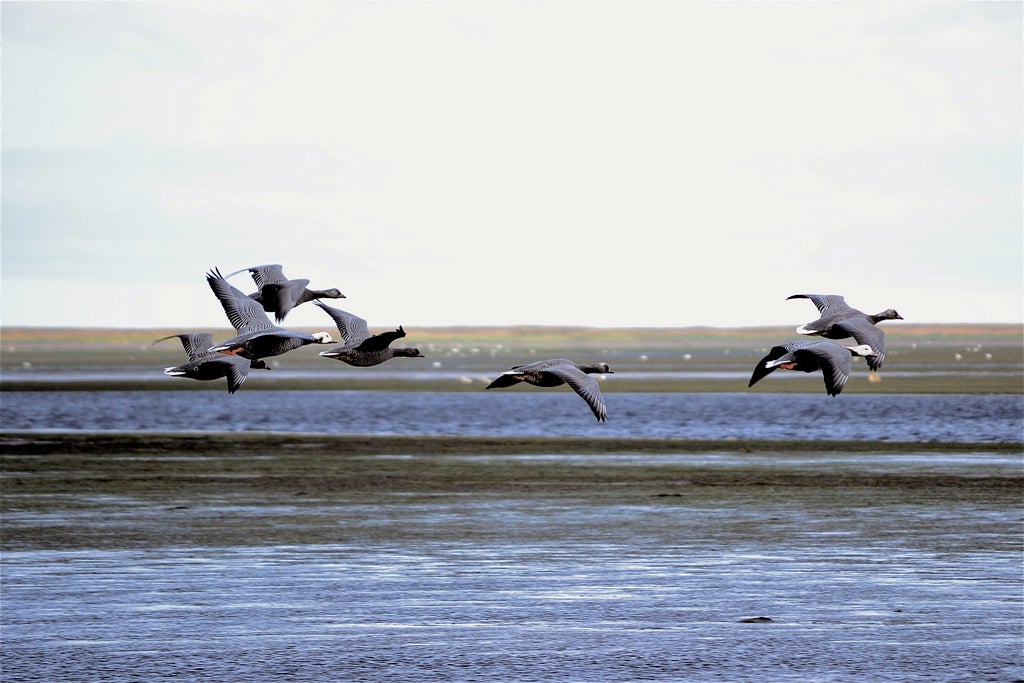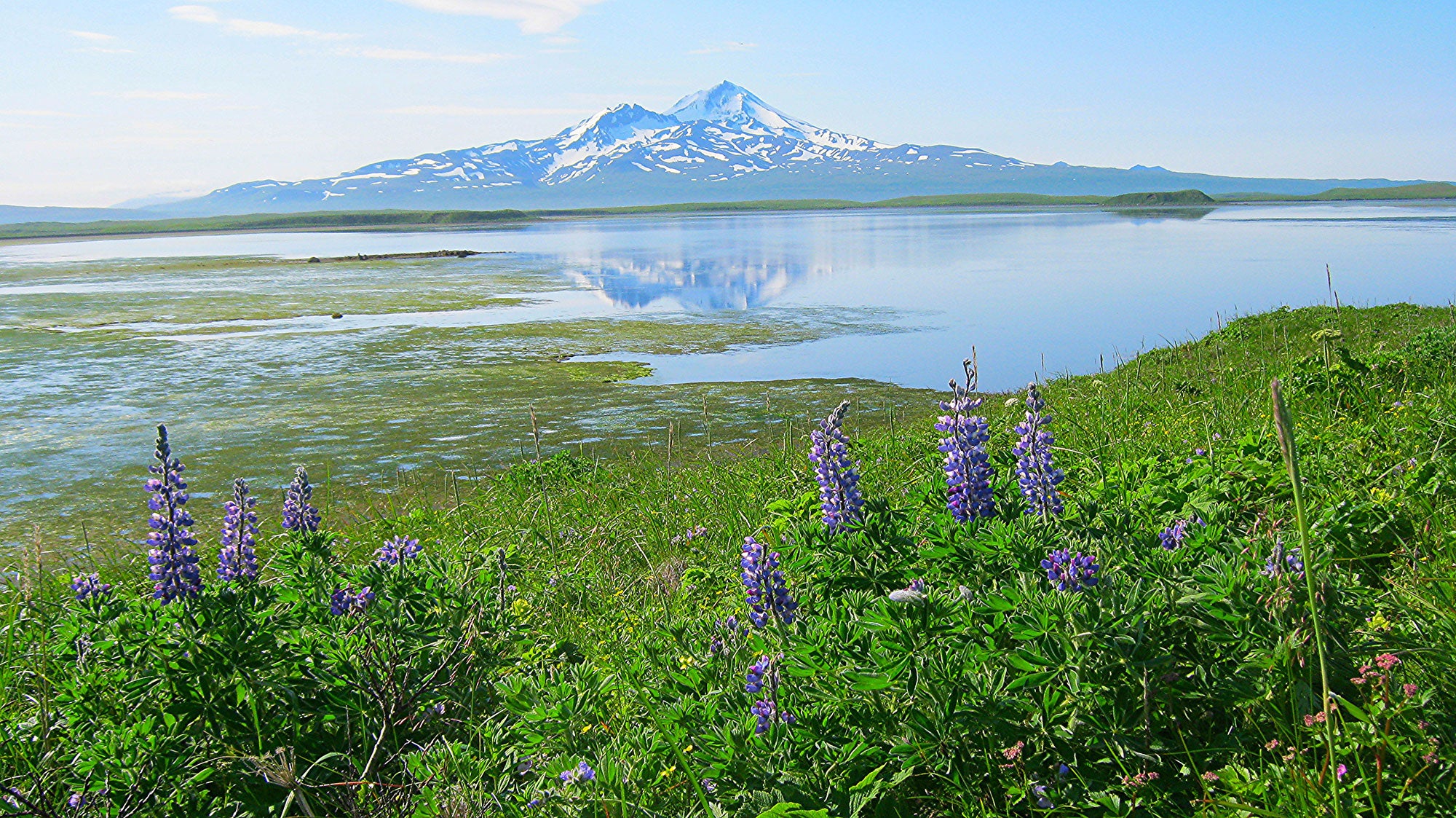The Native Village of Hooper Bay Opposes a Land Swap and Road through Izembek National Wildlife Refuge
The Western Alaska Tribe will continue to advocate against a road through Izembek Refuge
Contact
The U.S. Fish and Wildlife Service (USFWS) today released a draft supplemental environmental impact statement (SEIS) that paves the way for an ecologically-destructive land swap and road in Alaska that would slice through a critically important wildlife refuge for migratory bird species. These migratory birds, particularly Pacific black brant and emperor geese, are critical for the food security, health, and culture of Hooper Bay and other communities in Western Alaska.
The Native Village of Hooper Bay and its village corporation have long opposed a road through the Izembek National Wildlife Refuge on the Alaska Peninsula. Over the past several months, dozens of other tribes and tribal entities in the Yukon-Kuskokwim Delta and throughout Alaska have joined in passing resolutions opposing the land swap and a road through Izembek. Through its Waterfowl Conservation Committee, the Association of Village Council Presidents (a consortium representing 56 Yukon-Kuskokwim Delta tribes) has a longstanding resolution opposing the land exchange and road.
The Native Village of Hooper Bay is concerned because a previous USFWS environmental study concluded migratory birds — which Hooper Bay depends on to feed their families, support their culture, and sustain their health — would suffer major cumulative impacts from the land exchange and the road.
In particular, Pacific black brant and emperor geese stopover in Izembek to feed on some of the largest eelgrass beds in the world before continuing to their summer nesting grounds on the Yukon-Kuskokwim Delta. These geese and other migratory birds have since time immemorial been a critical food source and are essential to continuing traditional ways of life for tribes in the region.

Emperor geese in flight at Izembek National Wildlife Refuge, AK. (K. Mueller / USFWS)
Any loss of these species in the Yukon-Kuskokwim Delta could have devastating impacts to communities already stressed by climate change, the salmon crisis, and by significant socio-economic and health challenges, including high rates of poverty and the highest suicide rates in the nation. Western science and Indigenous knowledge agree that preserving subsistence and traditional practices is key to combating these impacts in Alaska Native communities.
The U.S. Fish and Wildlife Service proposes exchanging away federal lands within the Refuge for the purpose of constructing a road to connect the communities of King Cove to Cold Bay.
Hooper Bay, along with other tribes, has asked the agency to halt the SEIS process and consider a compromise that would provide safe and reliable transportation between King Cove and Cold Bay while avoiding harm to Western Alaska tribal members. A marine ferry alternative has previously been described by federal agencies, including the Army Corps of Engineers, as a reliable alternative but was not chosen as the environmentally preferable alternative in the draft SEIS despite substantial financial investment already invested in infrastructure to support this compromise.
Despite these concerns raised by dozens of tribes to federal officials and repeated requests to meet with decision-makers that were denied or left unanswered, the USFWS chose the land exchange and road as the preferred alternative in its draft SEIS.
“This is deeply distressing news and flies in the face of the Biden administration’s stated commitment to listen to tribes — we have not been heard. We understand the needs of King Cove and Cold Bay, but reliable solutions exist to improve access between the communities that would not jeopardize our tribe and others throughout Alaska,” said Native Village of Hooper Bay Chief Edgar Tall Sr. “As Secretary Haaland has noted, respecting tribal sovereignty requires really listening to tribal communities. We hope to meet soon with the Secretary so she can hear from us about the importance of these birds and this critical habitat in the Izembek Refuge that so many of us in Alaska depend on for our continuing ways of life and our survival.”
Chief Tall continued, “Our community has been overlooked in this decision and it’s time for that to change. Food insecurity caused by climate change, the Western Alaska salmon crisis, habitat loss, hunting restrictions and other factors are already putting substantial pressure on our community and challenging our ability to hunt, fish and gather in our traditional ways. Our community is coping with many difficult challenges, with chronic diseases on the rise and high suicide rates, especially for our youth. Allowing this road project to move forward is a setback with potential for irreparable and serious harm to our Tribal members.”

Additional Resources
About Earthjustice
Earthjustice is the premier nonprofit environmental law organization. We wield the power of law and the strength of partnership to protect people's health, to preserve magnificent places and wildlife, to advance clean energy, and to combat climate change. We are here because the earth needs a good lawyer.